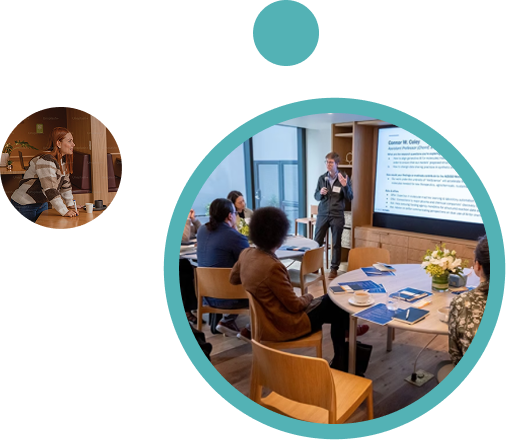Natasha Jaques
Natasha Jaques is an Assistant Professor of Computer Science and Engineering at the University of Washington, and a Staff Research Scientist at Google DeepMind. She leads the Social Reinforcement Learning lab, which focuses on accelerating AI through multi-agent and human-AI interactions. During her PhD at MIT, she developed foundational techniques for training language models with Reinforcement Learning from Human Feedback (RLHF). In the multi-agent space, she pioneered innovative techniques for improving coordination through social influence, and adversarial environment design to improve generalization. Natasha’s work has received various awards, including Best Demo at NeurIPS, an honourable mention for Best Paper at ICML, the Outstanding PhD Dissertation Award from the Association for the Advancement of Affective Computing, Best of Collection in IEEE Transactions of Affective Computing, and Best Paper awards at workshops on Cooperative AI, Pluralistic Alignment, Conversational AI, and Responsible Human-Centric AI, among others. Her work has been featured in venues including Science Magazine, MIT Technology Review, Fox News, Tech Crunch, National Geographic, Boston Magazine, and CBC radio. Natasha earned her Masters degree from the University of British Columbia, undergraduate degrees in Computer Science and Psychology from the University of Regina, and was a postdoctoral fellow at UC Berkeley.
AI2050 Project
How can we make sure that AI is safe, and helps us rather than manipulates us? The goal of Jaques’ project is to train language models that evolve and co-adapt to each other, in order to simulate how people might adapt to interacting with AI. They will use these techniques to train robust AI that responds safely no matter the input, personalizes to the needs of each user, and minimizes any impact it has in changing the user’s behavior. Their goal is to develop human-compatible AI, with increased transparency and user control, while minimizing risks and unintended side effects.
Assistant Professor, University of Washington
Hard ProblemAlignment


